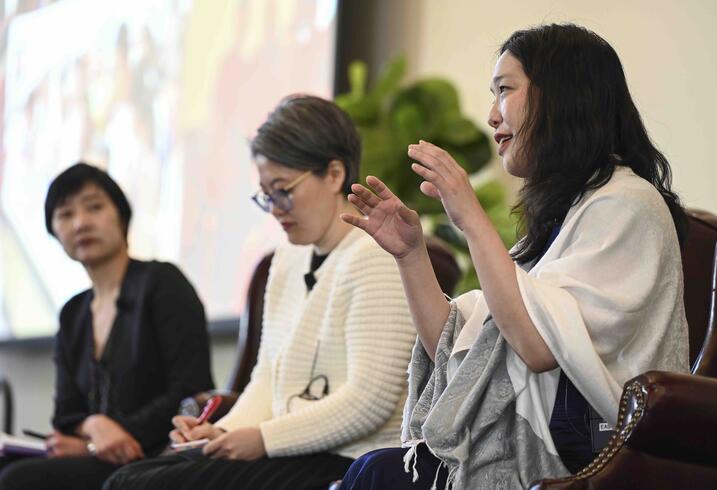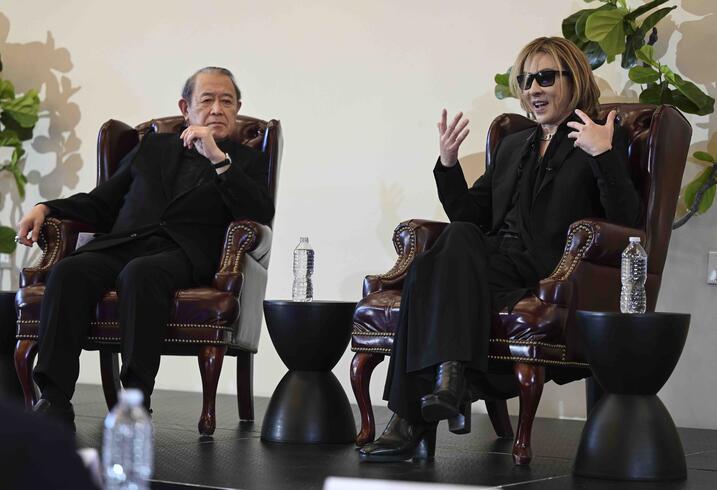Lessons of History: The Rise and Fall of Technology in Chinese History
On September 28, 2023 Yasheng Huang, International Program Professor in Chinese Economy and Business and Professor of Global Economics and Management at the MIT Sloan School of Management, joined SCCEI and Stanford Libraries as the guest lecturer for the 2023 Dr. Sam-Chung Hsieh Memorial Lecture. After introductions from Julie Sweetkind-Singer, Associate University Librarian, and Jennifer Choo, Strategic Policy Advisor at SCCEI, Professor Huang began his lecture speaking on the rise and fall of technology in Chinese history.
Professor Huang shared insights from his empirical study on inventiveness in Chinese history and its implications for today’s China. Using data from the Chinese Historical Invention Dataset (CHID), Huang identified three eras of technological inventiveness in China:
- The peak era: 4th century BCE to 6th century (1,000 years)
- The first decline: 6th century to 13th century (700 years)
- The second decline: 13th century to 20th century (700 years).
His findings support the storyline that China was once the most technologically advanced civilization in the world. China led Europe in metallurgy, ship construction, navigation techniques, and many other fields, often by several centuries. But China’s technological development stalled, stagnated, and eventually collapsed and its early technological leadership did not set the country on a modernization path. Huang devoted the rest of the lecture to looking at the reason for the peak and major decline of inventiveness in China.
Huang highlights the correlation between the political ideology and economic development during each era and the coordinating degree of inventiveness. His overarching argument is that, “China had vibrant technological development when China was more free, when there was more competition – ideological competition and political competition.” He found that Chinese technological decline was correlated, and potentially causally linked with, the rise of empires, political unitariness, and ideological conformity. Huang suggests that from the sixth century to present day, China has continued down a path of political unitariness and ideological conformity, thus hindering technological advancements in present day China.
Huang concluded his talk with some lessons from history. He proclaimed that economic and technological successes require both scale and scope. Scale being uniformity, such as government support, and scope being diversity and heterogeneity, such as competition and ideological freedom. China in history and today is most successful when both conditions are present.
Watch the Recorded Lecture
If you are interested in learning more from Professor Yasheng Huang and his study on technological achievements in China, read his book The Rise and Fall of the East and stay tuned for his forthcoming book focusing more specifically on technology in China.
Read More
MIT Professor Yasheng Huang joined SCCEI and Stanford Libraries to deliver a talk examining the factors behind the rise and the fall of Chinese historical technology and lessons for today’s China.













![Marietje Schaake [second from the left] during a press conference on universal human rights alongside her colleauges from the European Parliament.](https://fsi9-prod.s3.us-west-1.amazonaws.com/s3fs-public/styles/680x378/public/2023-04/policy_impact_marietje_schaake_human_rights_alberto_novi_flikr_hero.png?itok=IrYo_nO9)
![Marietje Schaake [left] moderates a panel at the 2023 Summit for Democracy with Neal Mohan, CEO of YouTube; John Scott-Railton, Senior Researcher at Citizen Lab; Avril Haines, U.S. Director of National Intelligence; and Alejandro N. Mayorkas, U.S. Secretary of Homeland Security.](https://fsi9-prod.s3.us-west-1.amazonaws.com/s3fs-public/styles/680x378/public/2023-04/policy_impact_marietje_schaake_democracy_summit_2_hero.png?itok=UXXkriBe)



























